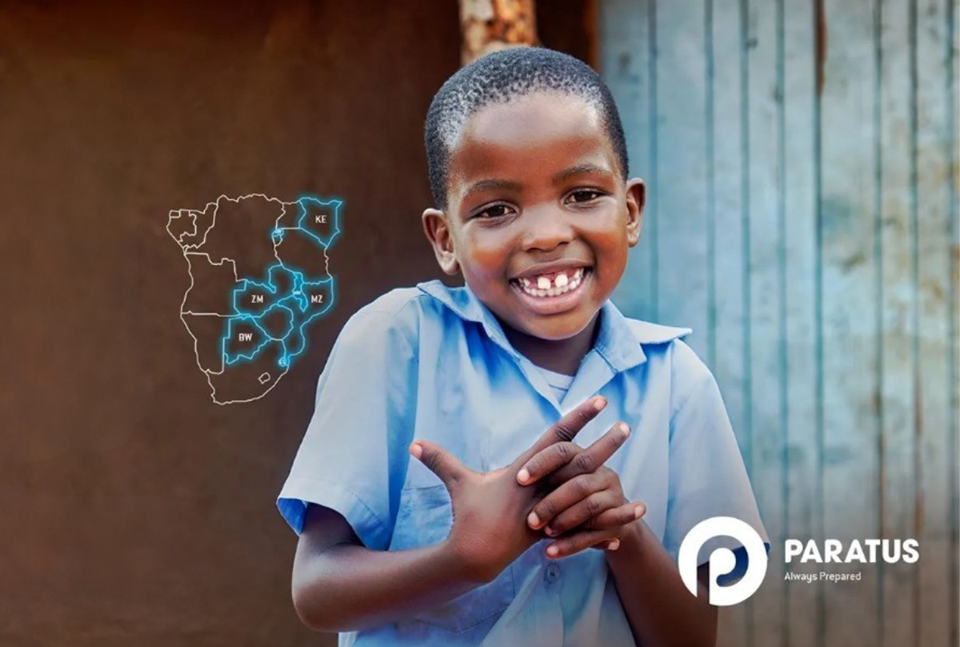Mozambique: Norway and UN project to strengthen women's participation in peacebuilding
Mozambique: Unplanned children don’t stop girls’ dreams

Photo: Lusa
- A UNFPA report says the teenage births, from 2001 to 2024, reached 158 per 1,000 in Mozambican girls.
At 17, Diana dreams of being a nurse and wakes up at 5:00 a.m. every day to cook what she sells outside her home in Maputo before going to school, while trying to support her two-year-old son.
“When I had my son, it was a blessing, but then the difficulties came,” she tells Lusa, sitting outside her home with baby Kayon in her arms, in the Mafalala neighbourhood in the heart of Maputo, where soccer star Eusébio was born.
The child wasn’t planned since, like so many other Mozambican teenagers, contraceptives aren’t a priority: “It was a great lesson; I’ll never make that mistake again.”
Diana Manhiça’s life reflects a global United Nations report that lists Mozambique as the country with the fourth-highest teenage birth rate among girls aged 15 to 19 worldwide, and predicts a doubling of the population within 25 years.
The ‘State of World Population 2025′ report, presented a week ago in Maputo by the United Nations Population Fund (UNFPA), states that the teenage birth rate, from 2001 to 2024, reached 158 per 1,000 Mozambican girls.
“It was very difficult, especially at school. I had to face the bullying and the evil eye. That was a huge challenge for me. But with my parents’ support, I made it through the end of the year,” recalls the teenager, who is raising her son alone, with only her parents’ support, in the same house, where six people live in a dozen square meters.
With great difficulty, her son’s father, then 23, accepted the child, but “never took proper care of him”. After the birth, they separated and Diana receives no child support. The only support comes from her parents, despite her initial fear of revealing the pregnancy, which she tried to hide until the very end.
“The challenge was telling my father that I was pregnant. It took me about six months (…) Fortunately, my father received the information properly, which I didn’t expect,” she says.
On the street, and at school, the reality was different, with “stares and criticism from neighbours that increased as my belly grew.”
“My belly showed at seven months. […] My mother noticed, my father didn’t,” she recalls, admitting that she knew about family planning but was “afraid” to get a contraceptive implant after hearing about alleged difficulties other women had experienced.
“I regretted it,” she confesses, quickly admitting that three months after her son was born, she got the implant – something she admits she should have done sooner: “I would do it without thinking twice, not even once.”
The UNFPA report estimates that the Mozambican population will be around 35.6 million this year, with 44% under the age of 14 and only 3% over 65. In Mozambique, the report points to 25 years as the deadline for the current population to double.
Oblivious to statistics, Diana harbours a desire to be a nurse. Although her pregnancy caused her to fail the 10th grade, she never left school, at the insistence of her father, who also helped her set up a small stall.
“My dream? To be a nurse, because I want to help a lot of people. To treat people well,” she says, adding: “I want to be a good nurse.”
Every day she gets up at 5:00 a.m. to cook badjias (fried snacks), which she serves with bread from her doorstep, and apas (flatbread), which she sells near the school.
Later, she drops her son off at his father’s barber shop.
“Then I get ready and go to school at Estrela Vermelha. I’ll be back at 12:00,” she says, her hands still full of dough, as she glances at her watch, with the time to leave for school fast approaching.

Despite the “very difficult” life she admits to leading, and the full support of her parents, she hopes her son “won’t make the same mistakes” in family planning.
“I’ll tell him about contraceptive methods, so he […] doesn’t mess around, so he doesn’t suffer the consequences of having a child early,” she says, while fearfully admitting her desire to give him a sibling.
“I want to have him on time. So he doesn’t go through any of the difficulties the first one went through. Everything has to be done in due time,” he assures.
The UNFPA study suggests that only one in three Mozambican women has the capacity to make decisions about the number of children they have, due to difficulties in accessing sexual and reproductive health services. Furthermore, on average, one child per family results from an unplanned pregnancy. It also highlights the high rate of premature unions, which affect almost half of girls (48%), who give birth for the first time before the age of 18.
Hortênsia Zefanias, 21, also lives in the Mafalala neighborhood and has two children. She became pregnant with her first at 17 and only told her mother, who lives in Inhambane, after giving birth: “It wasn’t easy. I tried to have an abortion, it didn’t work.”
She dropped out of school in the 10th grade and now lives with her partner, who works odd jobs on construction sites, her mother-in-law, and her brother-in-law in the same house. While she’d never considered contraception before, the difficulties forced her to, and two children later, she had an implant.
“Without children, I think I’d be working now. I would have finished school by now,” she laments, while assuring: “We’re happy, despite the difficulties.”
With children, “it’s fine like this,” and returning to school is a goal, dreaming of becoming an “entrepreneur,” especially since she worked at a stall before getting pregnant.
And regarding her children, still babies, she admits she’ll have the conversation about family planning when the time comes: “To teach them the right path, so they don’t end up like me. […] Go to school and work.”
In the same backyard as Hortênsia, in a zinc sheet metal house like so many others, lives Cíntia, 16, the oldest of three siblings. At the time, she had no idea, but it was Hortênsia, whom she calls her sister-in-law, who broke the news to her: She was 14 years old and pregnant.
“I didn’t have a belly; it only showed when I was four months pregnant. She was the one who discovered it. I was afraid to tell my mother,” she says nervously, holding her daughter Anaya.

Her boyfriend, then 17, denied being the father, and shortly after, Hortênsia dropped out of school. Contraception wasn’t something she’d considered, and quickly, as a child, her life changed, and playtime became responsibilities, like doing laundry and cleaning, to earn money for a layette.
Now she’s trying to finish 9th grade and is committed to raising her daughter, without thinking about boyfriends or more children. The goal: “To fight for my family.”
Her daughter is only two years old, but Cíntia thinks about the future and, above all, about her “mistakes”: “I’m going to demand she knows how to handle things with her partner.”
In Mozambique, according to a UNFPA study, the fertility rate is 4.6 children per woman, an average that Emília Rodrigues, known as ‘Maimuna,’ in Mafalala neighbourhood, knows well.
She became pregnant for the first time at 17. Today, she is 35 and has four daughters from three different fathers, which forced her to drop out of school in 5th grade. The last one was about 10 years ago, none planned, but always with the desire, already pregnant, to have a boy.
“I was very playful,” she recalls, after using scrap wood to put the worn-out kettle on the stove to make tea for the younger ones.
“Because to have all those, I wanted to have a boy. With each pregnancy, a girl was born,” she says, recalling the warning she received from her brother, who helps her around the house: “Girl, don’t get pregnant.”
“That belly isn’t mine,” was the response she tired of hearing from her friends, forcing her to make a living.
Between odd jobs and the support of her mother and brother, ‘Maimuna’ got the contraception implant, something she never worried about, and the desire for a boy was put on hold. Her daughters are 17, 14, 12, and 10 years old; they all attend school, and the older ones have already received contraceptive implants.
“Just be careful,” she asks, while still lamenting having stopped studying: “I regret it, I would like to go back. School is a way forward.”












Leave a Reply
Be the First to Comment!
You must be logged in to post a comment.
You must be logged in to post a comment.